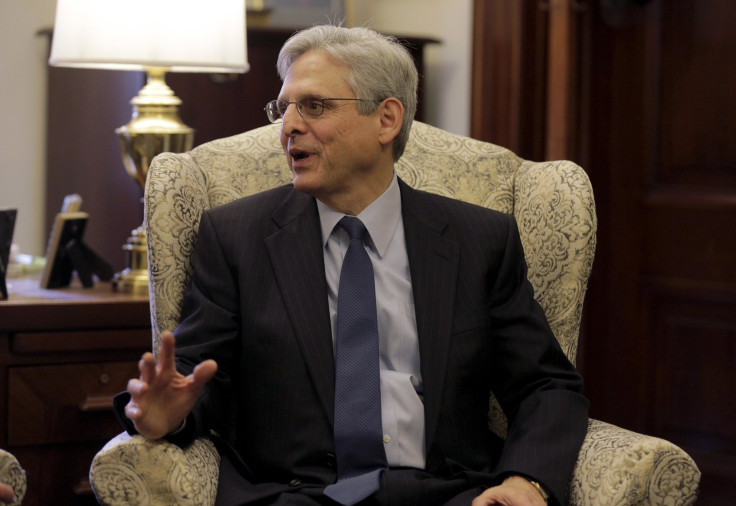Poll: Majority Of US Supports Judge Merrick Garland As Supreme Court Nominee

While Republican leadership in the Senate has staunchly opposed holding a vote on the subject, 52 percent of Americans support the confirmation of Merrick Garland to the U.S. Supreme Court, according to a Gallup poll released Monday.
The poll also found that 29 percent of Americans oppose a Senate confirmation of Garland. Nineteen percent didn't have an opinion on the subject.
Garland's level of support falls in line with historical data, essentially matching a 51 percent average for initial public support for the eight nominees Gallup has tested since 1991.
U.S. Support for Garland Average for Supreme Court Nominees... https://t.co/s23pfHUp5W pic.twitter.com/4BXtLN0y9J
— GallupNews (@GallupNews) March 21, 2016
The Gallup poll was conducted March 18-19, just days after President Barack Obama nominated Garland to fill the Supreme Court vacancy left upon the death of Justice Antonin Scalia. Gallup found support for Garland outpaced previous nominees such as Obama's 2010 nominee Elena Kagan (46 percent) and former President George W. Bush's 2005 nominee Harriet Miers (44 percent), who eventually withdrew. Only Bush's nominee John Roberts at 59 percent that year had a significantly higher level of initial support among recent nominees.
Garland's nomination has sparked a political debate since it occurred during a presidential election year. Many conservatives have said Obama should not nominate a justice during his final year in office, instead allowing the next president to choose. Among Republican respondents 51 percent said they would not vote in favor of Garland, while 76 percent of Democrats said they would vote in favor.
Past polls have suggested a majority of Americans at least want the Senate to address the nomination. Fifty-three percent of respondents in a New York Times/CBS News poll released this week said they want the Senate to hold a vote.
The Gallup poll was conducted via phone calls with 1,019 adults 18 and older living in all U.S. states and the District of Columbia. The margin of error is 4 percentage points.
© Copyright IBTimes 2025. All rights reserved.






















